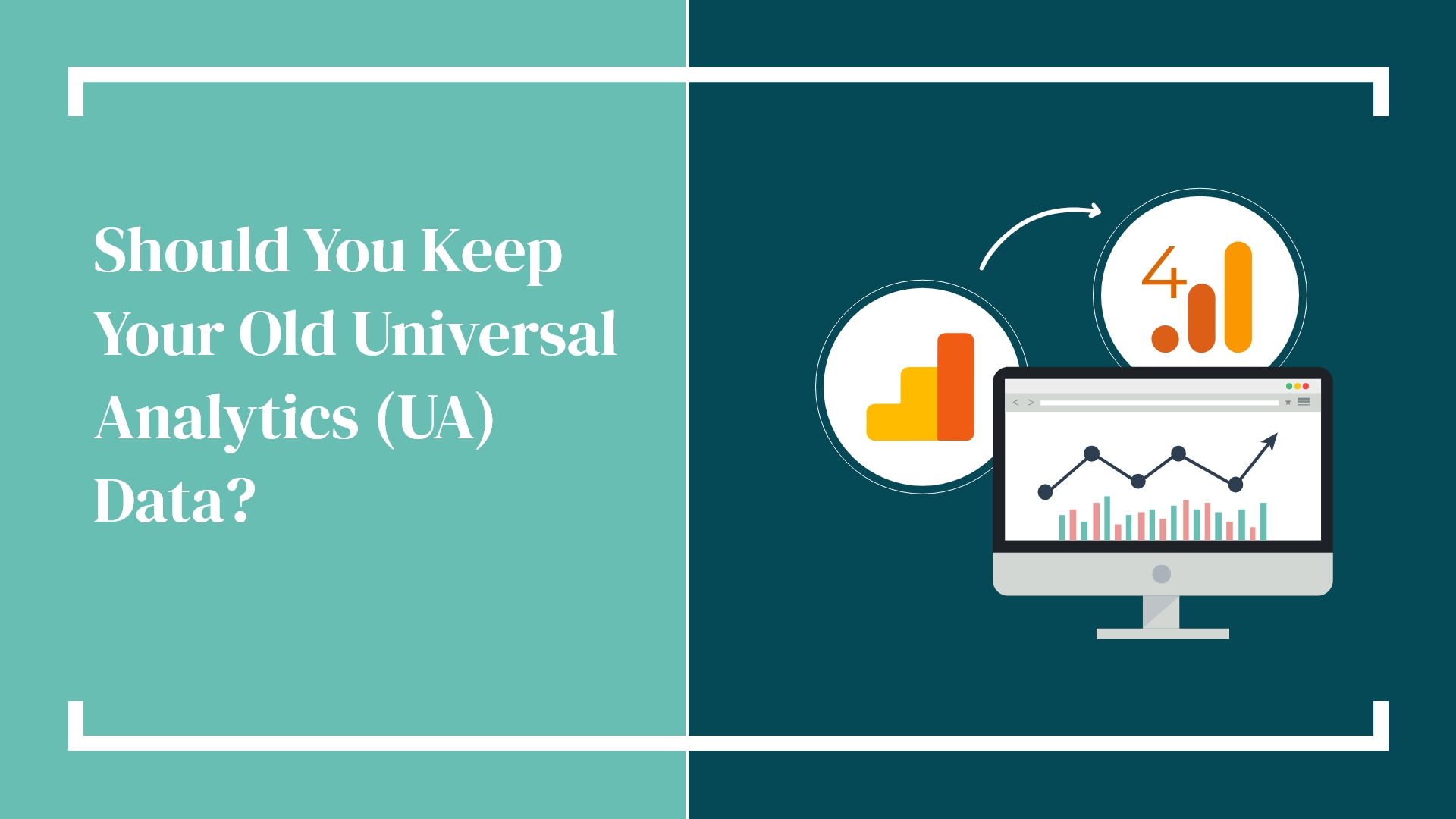To keep or not to keep? With the introduction of Google’s new analytics platform, Google Analytics 4 (GA4), many business owners are trying to determine if they should keep their old Universal Analytics (UA) data or let it go. Deciding whether to keep or discard your old Universal Analytics data ultimately depends on your business needs, goals, and priorities. Retaining the data allows for historical analysis, benchmarking, and seamless reporting. On the other hand, deleting the data can simplify the transition process, provide a clean slate for compliance, and align your strategies with the enhanced capabilities of GA4.
Why You Might Want to Retain Your Old Universal Analytics Data:
- Historical Data Analysis: Your UA data contains valuable insights into user behavior, traffic sources, conversion rates, and more. By retaining it, you can continue to analyze historical trends and patterns within your website’s performance.
- Benchmarking and Goal Setting: Access to historical data assists in establishing benchmarks that can guide your future strategies and goal setting. It provides a basis to compare the performance of your website before and after transitioning to GA4.
- Reporting: If you regularly provide analytics reports to stakeholders, having historical data in your arsenal ensures continuity and consistency in reporting, making it easier to track long-term progress and demonstrate improvements.
- Customized Tracking and Segmentation: Your UA data includes customized tracking events, goals, and segments meticulously set up over time. Migrating all these settings and configurations to GA4 can be time-consuming and might require the assistance of a developer. Retaining your UA data ensures you can continue benefiting from these customizations while taking your time with the migration.
Why It May Not Want to Keep Your Old Universal Analytics Data:
- Simplicity and Cost: By deciding not to retain your UA data, you can streamline your analytics efforts, simplifying the process of transitioning entirely to GA4. Moreover, storing large amounts of data, particularly in BigQuery, can incur additional costs, so deleting old data might be a practical choice.
- New Tracking Features: GA4 introduces a host of new tracking features that make it easier to analyze user behavior across different devices and platforms. Moving forward, GA4’s event-based and customer-centric model may render certain UA reports less relevant. Therefore, retaining UA data may not contribute significantly to your future analytics objectives.
- Data Quality and Compliance: Over time, tracking codes and tags may become outdated, leading to discrepancies in data accuracy. By starting fresh in GA4, you can ensure that your analytics data is clean and, more importantly, in compliance with evolving privacy regulations such as GDPR and CCPA.
How to Download Your Universal Analytics Data:
Before making any decisions, it’s crucial to secure a backup of your UA data. Here’s a step-by-step guide to exporting your UA data:
- Log in to your Google Analytics account and navigate to the Admin section.
- In the Property column, select Data Streams (for GA4, this is referred to as “Data Streams” as well).
- Scroll down to the “Web” section and locate your UA property.
- Click on “Set up Stream” and select “Additional settings.”
- Under the “Data Import” tab, enable data imports for each data type you wish to retain.
- Set up a data retention policy to cover the desired period.
- Finally, configure data distribution settings and export the data to BigQuery, if applicable.
Need Help Understading Your Universal Analytics?
Do you need help understanding your Univeral Analytics and deciding whether you should keep your old Universal Analytics data or let it go? We can help. Schedule a complimentary consultation and let us help you figure it out.

